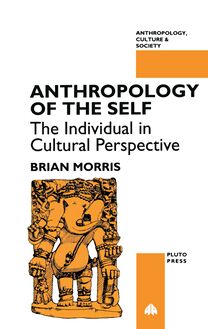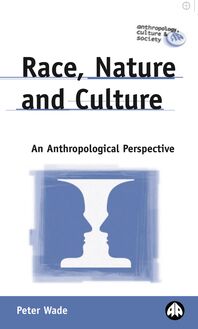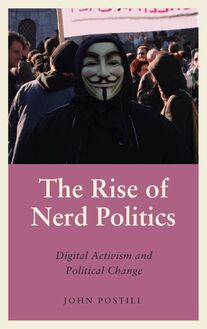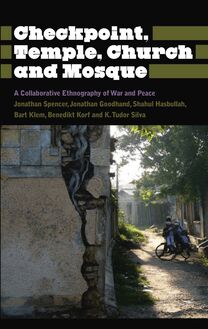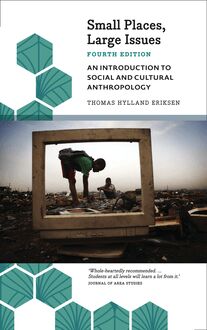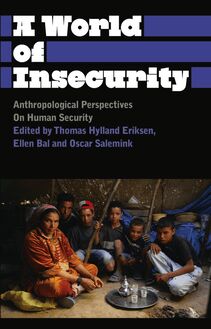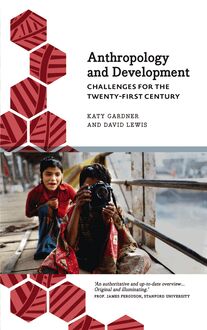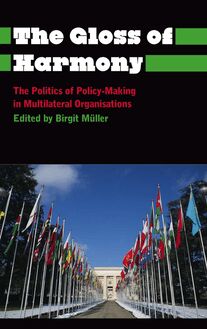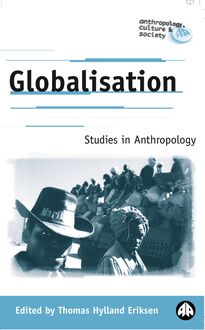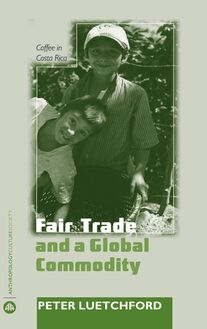-
 Univers
Univers
-
 Ebooks
Ebooks
-
 Livres audio
Livres audio
-
 Presse
Presse
-
 Podcasts
Podcasts
-
 BD
BD
-
 Documents
Documents
-
- Cours
- Révisions
- Ressources pédagogiques
- Sciences de l’éducation
- Manuels scolaires
- Langues
- Travaux de classe
- Annales de BEP
- Etudes supérieures
- Maternelle et primaire
- Fiches de lecture
- Orientation scolaire
- Méthodologie
- Corrigés de devoir
- Annales d’examens et concours
- Annales du bac
- Annales du brevet
- Rapports de stage
La lecture à portée de main
Vous pourrez modifier la taille du texte de cet ouvrage
Découvre YouScribe en t'inscrivant gratuitement
Je m'inscrisDécouvre YouScribe en t'inscrivant gratuitement
Je m'inscrisEn savoir plus
Vous pourrez modifier la taille du texte de cet ouvrage
En savoir plus

Description
The contributors reveal how corruption operates through informal rules, personal connections and the wider social contexts that govern everyday practices. They argue that patterns of corruption are part of the fabric of everyday life - wherever we live - and subsequently they are often endemic in our key institutions.
The book examines corruption across a range of different contexts from transitional societies such as post-Soviet Russia and Romania, to efforts to reform or regulate institutions that are perceived to be potentially corrupt, such as the European Commission. The book also covers the Enron and WorldCom scandals, the mafia in Sicily and the USA, and the world of anti-corruption as represented by NGOs like Transparency International.
1. Sharp Practice: Anthropology and the Study of Corruption by Cris Shore and Dieter Haer
Part I. Corruption in ‘Transitional’ Societies
2. The Intersection of Political Corruption and Organized Crime: A Comparison of Palermo, Italy and Youngstown, Ohio.
3. Bribes, Gifts, and Unofficial Payments: Towards an Anthropology of Corruption in Post-Soviet Russia by Michele Rivkin-Fish
4. Corruption as a Transitional Phenomenon: Understanding Endemic Corruption by David Lovell
5. Corruption, Property Restitution, and Romanianness by Filippo M. Zerilli
Part II. Institutionalised Corruption and Institutions of Anti-Corruption
6. Integrity Warriors: Global Morality and the Anticorruption Movement in the Balkans by Steven Sampson
7. Culture and Corruption in the EU: reflections on Fraud, Nepotism and Cronyism in the European Commission by Cris Shore
8. Corruption in Corporate America: Enron – Before and After by Carol MacLennan
Part III. Narratives and Practices of Everyday of Corruption
9. Narrating the State of Corruption by Akhil Gupta
10.‘Where the Jeeps Come From: Narrations on Corruption in the Alentejo (Southern Portugal) by Dorle Drackle,
11. Citizens despite the State: Everyday corruption and local politics in El Alto, Bolivia by Sian Lazar
12. Afterword: Anthropology and Corruption: the State of the Art by Dorothy Louise Zinn
Notes on Contributors
Index
Sujets
Informations
| Publié par | Pluto Press |
| Date de parution | 20 mai 2005 |
| Nombre de lectures | 3 |
| EAN13 | 9781783715336 |
| Langue | English |
Informations légales : prix de location à la page 0,1850€. Cette information est donnée uniquement à titre indicatif conformément à la législation en vigueur.
Extrait
CORRUPTION
Anthropology, Culture and Society
Series Editors: Professor Thomas Hylland Eriksen, University of Oslo Dr Jon P. Mitchell, University of Sussex
RECENT TITLES
Land, Law and Environment: Mythical Land, Legal Boundaries Edited by A LLEN A BRAMSON AND D IMITRIOS T HEODOSSOPOULOS
The Trouble with Community: Anthropological Reflections on Movement, Identity and Collectivity V ERED A MIT AND N IGEL R APPORT
Anthropology and the Will to Meaning: A Postcolonial Critique V ASSOS A RGYROU
Risk Revisited Edited by P AT C APLAN
Macedonia: The Politics of Identity and Difference Edited by J ANE K. C OWAN
Ethnicity and Nationalism: Anthropological Perspectives T HOMAS H YLLAND E RIKSEN
Globalisation: Studies in Anthropology T HOMAS H YLLAND E RIKSEN
A History of Anthropology T HOMAS H YLLAND E RIKSEN AND F INN S IVERT N IELSEN
Small Places, Large Issues: An Introduction to Social and Cultural Anthropology T HOMAS H YLLAND E RIKSEN
What is Anthropology? T HOMAS H YLLAND E RIKSEN
Anthropology, Development and the Post-modern Challenge K ATY G ARDNER AND D AVID L EWIS
Power and its Disguises: Anthropological Perspectives on Power J OHN G LEDHILL
Control and Subversion: Gender Relations in Tajikistan C OLETTE H ARRIS
Youth and the State in Hungary: Capitalism, Communism and Class L ÁSZLÓ K ÜRTI
Locating Cultural Creativity Edited by J OHN L IEP
Cord of Blood: Possession and the Making of Voodoo N ADIA L OVELL
Cultivating Development: An Ethnography of Aid Policy and Practice D AVID M OSSE
Ethnography and Prostitution in Peru L ORRAINE N ENCEL
Witchcraft, Power and Politics: Exploring the Occult in the South African Lowveld I SAK A. N IEHAUS with E LIAZAAR M OHLALA AND K ALLY S HOKANE
Power Community and the State: The Political Anthropology of Organisation in Mexico M ONIQUE N UIJTEN
Social Mobility in Kerala: Modernity and Identity in Conflict F ILIPPO O SELLA AND C AROLINE O SELLA
Negotiating Local Knowledge: Power and Identity in Development Edited by J OHAN P OTTIER , A LAN B ICKER AND P AUL S ILLITOE
Class, Nation and Identity: The Anthropology of Political Movements J EFF P RATT
Ethnic Distinctions. Local Meanings: Negotiating Cultural Identities in China M ARY R ACK
The Cultural Politics of Markets: Economic Liberalization and Social Change in Nepal K ATHERINE N EILSON R ANKIN
Bearing Witness: Women and the Truth and Reconciliation Commission in South Africa F IONA C. R OSS
Landscape Memory and History: Anthropological Perspectives Edited by P AMELA J. S TEWART AND A NDREW S TRATHERN
Race, Nation and Culture: An Anthropological Perspective P ETER W ADE
CORRUPTION
Anthropological Perspectives
Edited by
D IETER H ALLER AND C RIS S HORE
First published 2005 by Pluto Press 345 Archway Road, London N6 5AA and 839 Greene Street, Ann Arbor MI 48106, USA
www.plutobooks.com
Copyright © Dieter Haller and Cris Shore 2005
The right of the individual contributors to be identified as the authors of this work has been asserted by them in accordance with the Copyright, Designs and Patents Act 1988.
British Library Cataloguing in Publication Data A catalogue record for this book is available from the British Library
ISBN 0 7453 2158 5 hardback ISBN 0 7453 2157 7 paperback ISBN 978 1 7837 1533 6 ePub ISBN 978 1 7837 1534 3 Mobi
Library of Congress Cataloging in Publication Data applied for
10 9 8 7 6 5 4 3 2 1
Designed and produced for Pluto Press by Chase Publishing Services Ltd, Fortescue, Sidmouth EX10 9QG, England Typeset from disk by Stanford DTP Services, Northampton, England Printed and bound in the European Union by Antony Rowe, Chippenham and Eastbourne, England
CONTENTS
1
Introduction – Sharp Practice: Anthropology and the Study of Corruption
Cris Shore and Dieter Haller
Part I Corruption in ‘Transitional’ Societies?
2
The Sack of Two Cities: Organized Crime and Political Corruption in Youngstown and Palermo
Jane Schneider and Peter Schneider
3
Bribes, Gifts and Unofficial Payments: Rethinking Corruption in Post-Soviet Russian Health Care
Michele Rivkin-Fish
4
Corruption as a Transitional Phenomenon: Understanding Endemic Corruption in Postcommunist States
David W. Lovell
5
Corruption, Property Restitution and Romanianness
Filippo M. Zerilli
Part II Institutionalized Corruption and Institutions of Anti-corruption
6
Integrity Warriors: Global Morality and the Anti-corruption Movement in the Balkans
Steven Sampson
7
Culture and Corruption in the EU: Reflections on Fraud, Nepotism and Cronyism in the European Commission
Cris Shore
8 .
Corruption in Corporate America: Enron – Before and After
Carol MacLennan
Part III Narratives and Practices of Everyday Corruption
9
Narrating the State of Corruption
Akhil Gupta
10
Where the Jeeps Come From: Narratives of Corruption in the Alentejo (Southern Portugal)
Dorle Dracklé
11
Citizens Despite the State: Everyday Corruption and Local Politics in El Alto, Bolivia
Sian Lazar
12
Afterword – Anthropology and Corruption: The State of the Art
Dorothy Louise Zinn
Contributors
Index
1 INTRODUCTION – SHARP PRACTICE: ANTHROPOLOGY AND THE STUDY OF CORRUPTION 1
Cris Shore and Dieter Haller
The context for this book was set by several incidents, foremost among which were the dramatic fraud and corruption scandals that rocked corporate America at the end of 2001 following the collapse of the US energy corporation Enron. Some authors have predicted that in years to come the Enron scandal, not the terrorist attacks of 11 September, will be seen as the greater turning point in US society 2 – an unlikely claim, but one that invites us to ask what deeper lessons are to be learned from an analysis of what happened. 3 Enron’s demise was precipitated by revelations about its complex financial manoeuvres designed to hide debt and conceal its various offshore and off-balance sheet partnerships. These were created in order to give a false impression of the company’s profitability and make millionaires of its senior managers. Its success in both of these aims was exemplary – at least in the short term. However, in December 2001 Enron filed the largest bankruptcy petition in the history of the United States. Three months later, Enron’s accountants Arthur Andersen were also indicted on criminal charges of obstruction of justice and ‘knowingly, intentionally and corruptly’ inducing employees to shred documents relating to Enron (Gledhill 2003). The sheer magnitude of these accountancy scandals was unprecedented, as was the fact that they occurred at the heart of the US financial system. Yet barely three months later, in June 2002, they were eclipsed by an even larger scandal when the global telecoms giant WorldCom was discovered to have inflated its profits by $3.8 billion – a figure later revised upwards to a staggering $7 billion. 4
What is significant about these events from an anthropological perspective is that they remind us that Europeans and Americans cannot assume that grand corruption is something that belongs primarily to the non-Western ‘Other’ or to public-sector officials in defective state bureaucracies: corruption (both massive and systemic), we should not be surprised to learn, can also be found in the very heart of the regulated world capitalist system. The Enron and WorldCom affairs also provided a fitting backdrop to the international panel on ‘corruption’ that met in August 2002 at the 7th European Association of Social Anthropologists’ conference in Copenhagen. 5 Significantly, we met in a nation-state ranked the ‘second least corrupt country in the world’ according to Transparency International’s (TI) ‘Corruption Perception Index’. To borrow a phrase from Shakespeare, all would seem to be remarkably well in the Kingdom of Denmark. But what exactly do indices like ‘second least corrupt’ or ‘most corrupt’ country mean in this context, and how should we interpret such measurements or the moral claims they produce? Is corruption something that can be quantified and rated in such an abstract and disembodied manner, and how accurately do measures of people’s ‘perceptions’ reflect the ‘reality’ or complexity of how corruption is practised or experienced? As these questions indicate, the aim of this book is to interrogate the idea of corruption as a category of thought and organizing principle, and to examine its political and cultural implications. The overarching question that frames our analysis is ‘What contribution can anthropology make to understanding corruption in the world today?’ As the contributors to this volume show, looking at corruption from an anthropological perspective necessarily draws our attention towards problems of meaning and representation, rather than the more conventional institutional approaches and theoretical model-building that seem to characterize so much of the corruption studies literature. To embark on such a project, however, we must first ask what exactly is corruption, and how useful is this term as an analytical concept? What are the conditions that encourage corrupt practices to flourish, and how are such behaviours manifested and interpreted in different contexts?
Part of the reason for opening up such arguably intractable questions is to counter the tendency among governments and policy-makers engaged in the anti-corruption movement to bring about a premature closure on the question of how to define ‘corruption’ as an analytical category. According to the World Bank, that whole debate is now effectively closed. ‘Corruption’, it confidently asserts, is ‘the abuse of public office for private gain’ (World Bank 2002) – and upon this definition now rests a whole raft of policies concerning transparency, liberalization and ‘good governance’. But this definition reduces corruption simply to a problem of dishonest individuals or ‘rotten apples’ working in the public sector. It also reduces
-
 Univers
Univers
-
 Ebooks
Ebooks
-
 Livres audio
Livres audio
-
 Presse
Presse
-
 Podcasts
Podcasts
-
 BD
BD
-
 Documents
Documents
-
Jeunesse
-
Littérature
-
Ressources professionnelles
-
Santé et bien-être
-
Savoirs
-
Education
-
Loisirs et hobbies
-
Art, musique et cinéma
-
Actualité et débat de société
-
Jeunesse
-
Littérature
-
Ressources professionnelles
-
Santé et bien-être
-
Savoirs
-
Education
-
Loisirs et hobbies
-
Art, musique et cinéma
-
Actualité et débat de société
-
Actualités
-
Lifestyle
-
Presse jeunesse
-
Presse professionnelle
-
Pratique
-
Presse sportive
-
Presse internationale
-
Culture & Médias
-
Action et Aventures
-
Science-fiction et Fantasy
-
Société
-
Jeunesse
-
Littérature
-
Ressources professionnelles
-
Santé et bien-être
-
Savoirs
-
Education
-
Loisirs et hobbies
-
Art, musique et cinéma
-
Actualité et débat de société
- Cours
- Révisions
- Ressources pédagogiques
- Sciences de l’éducation
- Manuels scolaires
- Langues
- Travaux de classe
- Annales de BEP
- Etudes supérieures
- Maternelle et primaire
- Fiches de lecture
- Orientation scolaire
- Méthodologie
- Corrigés de devoir
- Annales d’examens et concours
- Annales du bac
- Annales du brevet
- Rapports de stage
